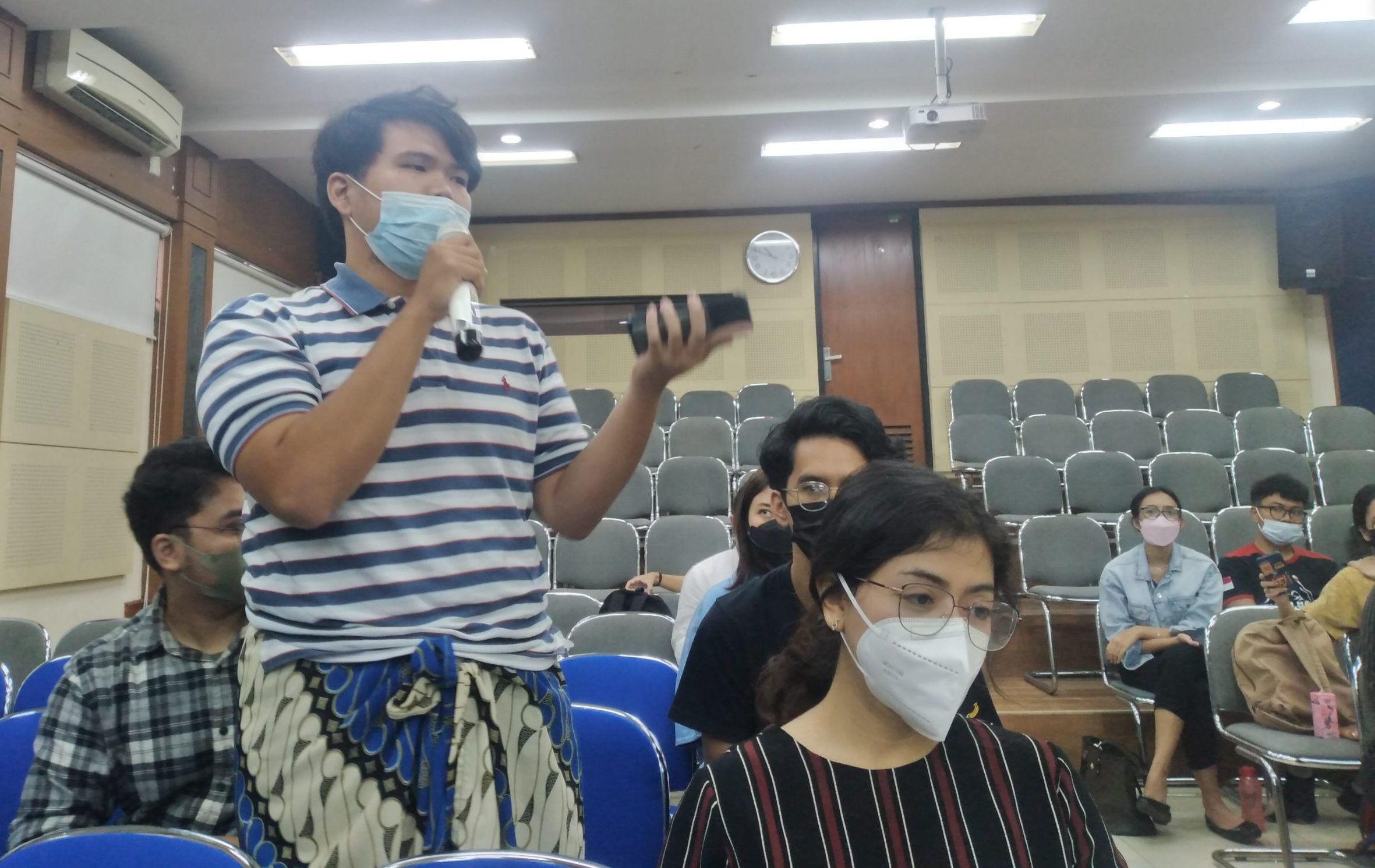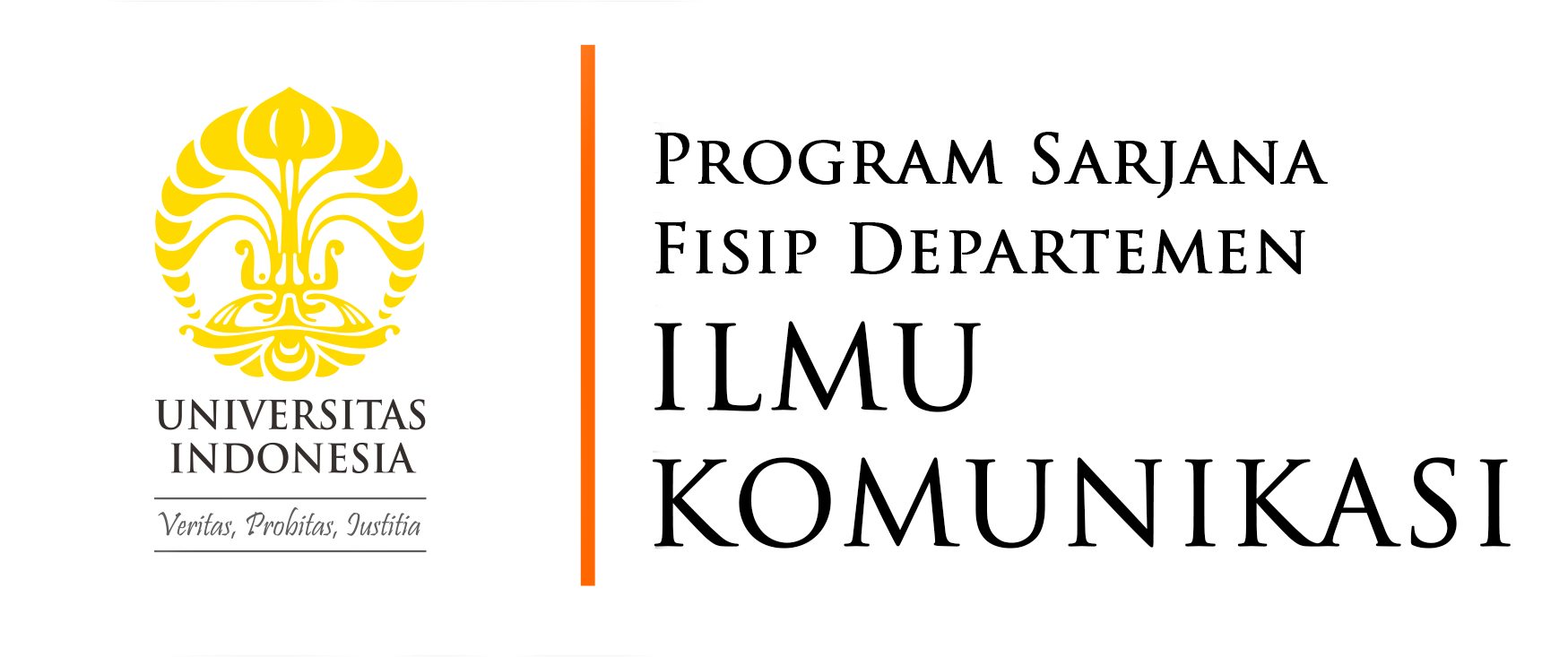
Chairman of Undergraduate Program of Department of Communication Sciences of the University of Indonesia, Whisnu Triwibowo (left), with Voice of America editor Steven Springer (right), Friday (23/09/2022) at the Auditorium of UI Communication Building, Depok. (Photo: Anggi Ropininta P.)
DEPOK – The discipline of verification in journalism is becoming increasingly important amid information’s swift flow and speed. The Editor of News Standards and Best Practices Voice of America (VOA), Steven Springer, revealed this in a public lecture at Undergraduate Program of Department of Communication Sciences in FISIP Universitas Indonesia, Friday (23/09/2022).
Springer said that verification challenges come from increasingly diverse news sources. One of Springer’s concerns is social media, “Social media is indeed a good source of news but it can also be very dangerous because people create hoaxes and false information there,” he said in the public lecture entitled “Best Journalism Practices”.
Furthermore, he also explained how to apply the discipline of verification for social media sources. Currently, the media often quote words or information from a personal account on social media. Ideally, the media should contact the account owner first to find out the truth of the information.
Unfortunately, according to Springer, this verification practice is sometimes ignored due to demand for speed. The media competes to be the first to report so that the news passes the verification process. In fact, Springer said false information can harm the public.
Therefore, he emphasized that the media must be more patient and spend more time verifying. “It’s better to be second but right than first and wrong,” Springer said.
The verification process is not only carried out by the media but also by the public. Springer added that people are encouraged to read other sources that may have a different point of view. This step is one of the verification strategy for the audience.
“The reader does have to decide which is right when reading both sides, but at least he has gotten a complete picture of the story,” Springer said.

One of the participants of the public lecture asked a question to the speaker (Photo: Anggi Ropininta P.)
Journalist Salary
In addition to the discussion on verification, in the public lecture, Springer was also asked for responses on various matters related to journalistic practice by UI Department of Communication Sciences students, one of which was about journalists’ salaries. According to him, the salary amount is determined by several factors.
“When you say, what is good money? Is it 5 digits, 50 thousand dollars, 75 thousand dollars, 125 dollars, or 200 thousand dollars? It all depends on how long you work, your job, and who you work for,” Springer said.
He revealed that he earned almost nothing financially at the beginning of his journalism career 40 years ago. Even in the middle of his career, he admitted that he had experienced a large salary cut.
However, as a journalist gains experience, the income earned also improves. “You can be paid well, but don’t expect to be paid well at the beginning (of a journalism career),” said Springer.
As for the context in Indonesia, the Alliance of Independent Journalists (AJI) in 2021 submitted one of the proposals regarding the living wage of journalists, IDR 8,366,220 per month.
On the other hand, Steven emphasized that journalists have crucial duties and roles for the public regardless of income. The most important task of journalists is public service through accurate and balanced information.
VOA East Asia and Pacific Director Nadia Madjid expressed the same thing. She believes that journalists must fulfil their responsibilities and conscience to empower society with information. “Because even if you are paid a million dollars, when is it enough?” Nadia said.
(Anggi Ropininta & Jelita Murni)

